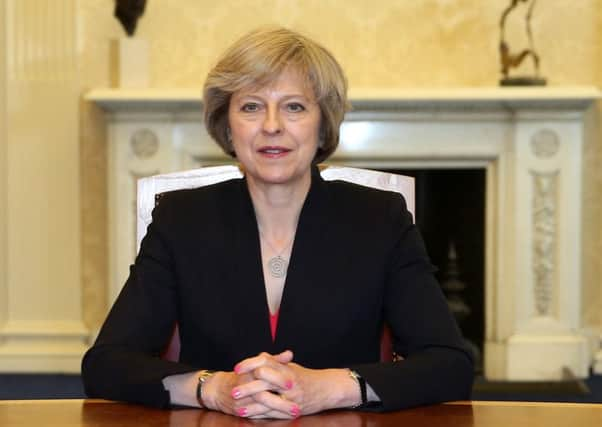YP Comment: May's message to Yorkshire. PM accepts there's '˜more to do'


Unlike her predecessor David Cameron and his team who took weeks to acknowledge concerns about their inadequate response to last winter’s floods, Mrs May and her aides appear to welcome the dialogue which began with yesterday’s special edition of this newspaper which highlighted six policy spheres – business, devolution, energy, education, farming and transport – which require the most urgent action.
There was an acknowledgement, from 10 Downing Street, that the Government still has “more to do” in Yorkshire, but that the Prime Minister recognises that the future success and prosperity of this region will be integral to the whole of the United Kingdom pulling together in the interests of all and not just the “privileged few”.
Advertisement
Hide AdAdvertisement
Hide AdTime will tell – it is less than three weeks since Mrs May became PM in hasty circumstances and the new Conservative leader has had the small matter of trying to build a business-like Government while building relations with her counterparts across Europe.
Yet, while it appears that the new premier appears to be a political pragmatist who will put policy before PR and photo-opportunities, Mrs May does need to appreciate that Yorkshire’s economy compares more than favourably to Scotland, which she visited on day two of her premiership for talks with Nicola Sturgeon, and that the outcome of the June 23 Brexit vote was, in part, due to Westminster’s political elite taking the neglected North for granted.
As such, Yorkshire and its residents await Mrs May’s more detailed response with interest and look forward to being able to welcome their PM in the near future so she can become more acquainted with this region’s pressing priorities.
An abuse of status
WHY is Samantha Cameron’s stylist and personal organiser Isabel Spearman more deserving of an OBE than the lollipop lady, street cleaner or charity volunteer working in all weathers to help their local community?
Advertisement
Hide AdAdvertisement
Hide AdThis is the unanswered question which goes to the heart of the resignation honours list proposed by David Cameron as the former PM seeks to reward a motley crew consisting of former colleagues, party donors and prominent Remain campaigners.
The honours system was not designed for the purposes of political patronage. It was always intended to reward those public-spirited individuals who are the bedrock of cities, towns and villages across the land.
Yet decades of political meddling, from Lloyd George’s cash for honours to Harold Wilson’s so-called Lavender List 40 years ago and Mr Cameron’s cronyism and rewards for failure (many of the recommended recipients were Remain supporters in the doomed EU referendum), threaten to undermine the system’s very credibility.
Even though Mr Cameron’s successor Theresa May is reluctant to become embroiled in this row, effectively saying it is up to her predecessor to sort a mess of his own making, she does have it within her power to forbid ex-PMs from being able to make such nominations and ensuring that new protocols are in place so politicians can no longer meddle with the honours system.
Advertisement
Hide AdAdvertisement
Hide AdThe point is this: If the 48 individuals recommended by Mr Cameron are totally deserving of the many grand titles in question – Sheffield industrialist Andrew Cook is said to be in line for a knighthood – their endeavours should not require any political interference whatsoever because their contribution to society will be self-evident.
Food for thought
SO much for those innumerable pre-referendum warnings that food prices would rise inexorably if Britain voted for Brexit.
Thankfully, this foreboding does not appear to have reached Bradford-based supermarket Morrisons which has announced its intention to do the precise opposite.
Two points can be gleaned from the approach being pursued by chief executive David Potts. First, the whole business community has a duty to be measured in its response to Brexit. Second, supermarkets will have to continue providing customers with value for money if they are to retain their market share.
If Morrisons can achieve both while also supporting Yorkshire farmers and food producers, this will have been a Yorkshire Day to savour.